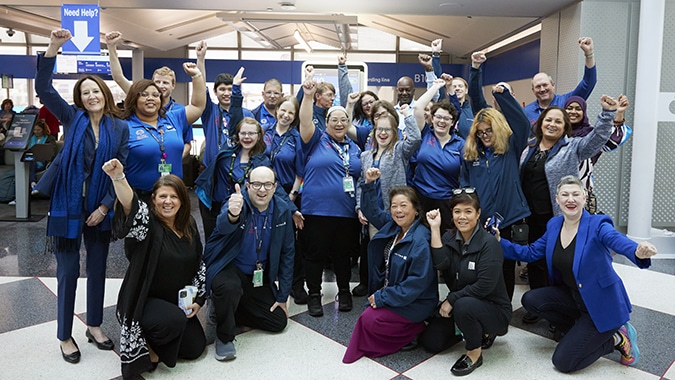Legislative committees on Thursday advanced bills that would help provide young adults with developmental disabilities the mentoring and skills training to transition to employment and independent living and offer incentives to employers who hire them.
“Once individuals with developmental disabilities exit the secondary school system, there is often a sudden void that leaves them unable to reach greater productivity and independence,” NJBIA Chief Government Affairs Officer Chrissy Buteas said. “Developing career pathways for individuals with disabilities is important for them and for businesses as well.”
The first bill, A-6228/S-4211, sponsored by Assemblyman Dan Benson (D-14) and Senate President Steve Sweeney, would provide $4.5 million to create county college-based adult centers for transition serving individuals with developmental disabilities up to the age of 24. The centers would provide mentoring, job coaching, skills training, and any other appropriate wrap-around services to help the developmentally disabled make a successful transition into employment and independent living. The Assembly Appropriations Committee voted unanimously to release the bill.
The second bill, A-6230/S-4102, also sponsored by Assemblyman Benson and Senate President Sweeney, addresses the recruitment challenges faced by organizations that employ direct support professionals caring for developmentally disabled people. The legislation appropriates $450,000 to establish a Direct Support Professional Career Development Center at the New Jersey Community College Consortium for Workforce and Economic Development in partnership with a trade association serving organizations that employ direct support professionals.
The third bill, A-6062/S-4210, sponsored by Assembly Majority Leader Louis Greenwald (D-6) and Senate President Sweeney, would require the New Jersey Economic Development Authority to create a low-interest loan program to help business pay for workplace accommodations needed to employ the disabled, such as wheelchair ramps or computer screen reading software. To qualify, businesses must earn no more than $1 million a year and employ no more than 100 workers. The Assembly Appropriations Committee voted unanimously to release the bill.
The fourth bill, S-3809/A-5986, sponsored by Senate President Sweeney and Assemblyman Anthony Verrelli (D-15), would provide a tax credit to businesses that employ people with developmental disabilities. The legislation would allow a credit against corporation business tax liability or gross income tax liability of 10% of the salary and wages paid to an employee with a developmental disability. The credit would be claimed annually for the same employee. It would be capped at $3,000 per worker, and the total credit would be capped at $60,000 per taxpayer, per year. The Senate Budget Committee approved the legislation at its meeting on Thursday.



